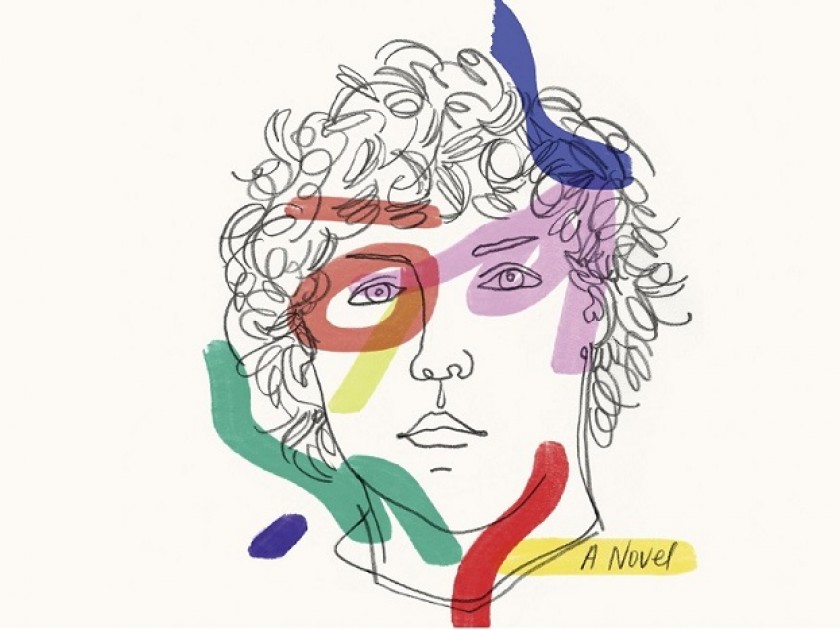
The writer I’ve spent the most time reading, by far, is Philip Roth. When I first read Portnoy’s Complaint in college, there was something about the style that instantly clicked with me — and it soon became clear to me that it was the Jewishness of Roth’s prose. The loquaciousness, the repetitiveness, the obsessiveness, the shpilkes, the manic exuberance about sensory experience, the tragicomic slant — it was how I talked, how my dad talked, how my grandfather talked. This was the writer of our experience.
But was it our experience? My grandfather and father — sure. But me? The older I got, the less certain I felt. As I became a writer, and fantasized about writing the Great Jewish-American Novel, I began to realize that Roth’s big theme — the Jewish boy’s quest to become American — was not my generation’s theme. Most of the Jews I knew, like me, were already exceedingly Americanized. None of us had ever been bullied for being Jews. None of our parents cared if we married a non-Jewish person. Most of us had a non-Jewish parent ourselves, had Christmas trees, and gorged on holiday ham. Very few of us even knew the word traif. In college, three of my roommates were half-Jews; none of them had been Bar Mitzvah’d or had ever set foot in a shul. Once, one of those friends saw a Bazooka Joe gum for sale at a Jewish deli, and asked the guy at the counter why he was selling gum with Chinese lettering on it. The guy laughed and explained that it was Hebrew.
So what was there to write about, Jewishly, when my generation of Jews was, increasingly, utterly assimilated? Our lives, compared to the lives of every single generation of Jews that had come before us, were amazingly frictionless. We’d made it. We’d blended in. We didn’t struggle, and without a struggle, what was there to write about?
But some of us did struggle. Some of us found that blending in wasn’t all that it was cracked up to be. Some of us found that we, in fact, yearned for otherness and the communal bonds that came with it.
In Boston, where I’m from, thousands of Jews who had been raised assimilated, or who had rejected their religious upbringings, have flocked to the Workmen’s Circle, a secular progressive Jewish organization that hosts high holiday events and runs a secular Sunday school. I attended this shule as a kid, which culminated in a secular Bar Mitzvah ceremony. I didn’t learn Hebrew or study Torah, but I sang Yiddish songs and learned about the history of the bund and the Triangle Shirtwaist strikers. At the time, I hated it; I much preferred to sit at home and watch football. But those songs are still with me, and the heroic history of the Jewish left still courses through my veins, and always will. And, as it turns out, I now live in a kosher household, with my observant Jewish wife and our son, Lev. I’m not saying I married a Jew and gave my kid a Hebrew name because of the Workmen’s Circle. But growing up in a strong Jewish community — and seeing how anchoring and enlivening that community has been for my parents over the years — certainly made me inclined to build a Jewish household of my own.
The narrator of my novel, Green, Dave Greenfeld, is more similar to my college roommates. He is raised with very minimal Jewish identity, and, as one of the only white kids at his almost entirely black and Latino middle school, the last thing he wants to broadcast is that he’s Jewish on top of being white. In order to bond with his peers, he pretends to be Christian, even wearing a crucifix around his neck. But as the novel progresses, Dave begins to feel the rumblings of desire for a more authentic identity.
In his remarkable essay collection, Notes on American Literature, D.H. Lawrence writes:
Men are free when they belong to a living, organic, believing community, acting in fulfilling some unfulfilled, perhaps unrealized purpose. Not when they are escaping to some wild west. The most unfree souls go west, and shout of freedom. Men are freest when they are most unconscious of freedom. The shout is a rattling of chains, always was.
I thought about these words a lot as I wrote Green, and think about them still as I continue to work out the kind of life I want for my family. As a younger man, I fetishized Wild West-style freedom. I believed that the Portnoy-like (or Swede-like, or Mickey Sabbath-like) breakaway from the old country, from communal boundaries and familial expectations, was the ultimate aim. But the older I get, the more I crave the freedom that comes not from bucking, but from belonging.
Breaking away, I discovered, is not my theme as a Jewish-American writer; it’s breaking back in.
Sam Graham-Felsen’s debut novel, Green, was a New York Times Editor’s Pick, an Amazon “Best Book of the Month,” one of Barnes and Noble’s “Six Debuts to Watch for in 2018,” and one of The New Yorker’s “Novels We Loved in 2018.” His nonfiction has appeared in the New York Times Magazine, the Washington Post, The Nation, and elsewhere. He was the chief blogger on Barack Obama’s 2008 campaign.